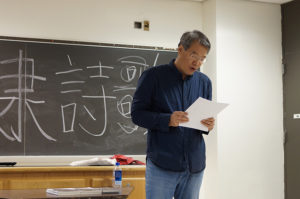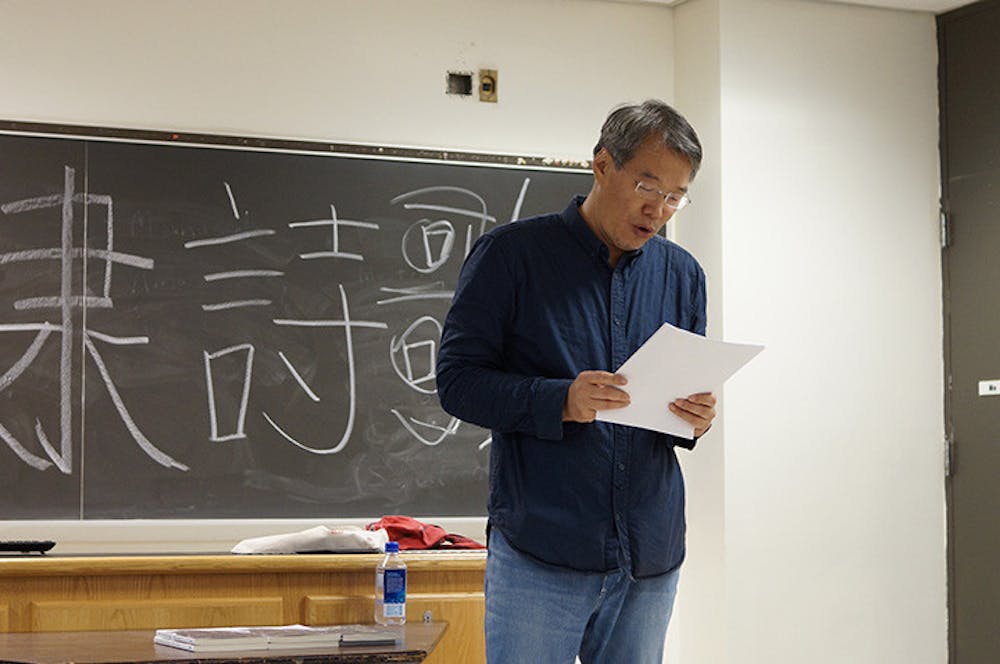By Nadir Roberts
Correspondent

Zang Di, an award-winning poet, visited Bliss Hall on Oct. 3, to share a rich collection of contemporary Chinese works.
Di began his career at Beijing University where he earned his doctorate in Chinese literature.
He then began teaching Chinese literature at the university shortly after. Di is also a critic, editor and translator. He’s received multiple honors, including the 2005 Southern Literary World’s award for criticism and the Chinese Poetry Biennial Top Ten Poets Award in 2008.
The poetry reading began with a soothing and majestic vibe erected by a 5,000-year-old Chinese string instrument called a guqin. The interactive poetry session allowed for a few of the listeners to read some of Di’s poetry. Since his poems were in Chinese, Jia-Yan Mi, an English and world languages and culture professor at the College, translated the poet’s words.
Zang Di’s reading consisted of 10 poems, each a different series from his collections, which all revolve around four main elements. Di described his elemental messages as lyrics of emotion and romance, attention to nature, surrealism and humor. All elements were seen heavily throughout the night’s reading. Prior to reading each of the poems, Di explained the meaning behind his poetry and how what inspired him to write each work.
“Humanity is like living in a urban city for so long,” Di said before reading his seventh poem, “Study of Primitive Man Series.”
“We’re losing our spontaneousness,” he added.
Di said that Chinese culture and Western culture are very different in how they approach various aspects of life. In Chinese culture, the secrets of meaning are in nature, whereas in Western culture, people search for the secret of meaning in human life and society, according to Di.
Before reading his fourth poem, “An Anti Universe Series,” Di explained that Chinese culture involves the longstanding tradition of including landscape and nature in poetry — subjects that are much appreciated in his culture.
As time began to wind down, spectators had the opportunity to ask Di questions. One student asked what crucial advice he would give rising poets.
“First, writing is lonely, there’s no money, so you have to devote everything,” Di said of the impracticality of his calling. “This is what I like to do.”
For many of the listeners, the poetry reading provided a different perspective on both American and Chinese culture.
Janyyah Williams, a freshman mechanical engineering major, was able to gain a new appreciation and perspective from the poetry.
“I liked how this was able to approach poetry in a different way,” Williams said. “It inspired me to write too.”







